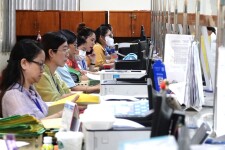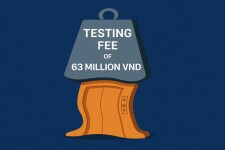The objective is to assess the current situation of Vietnam’s elevator industry, especially in terms of ethics and quality of industry human resources. From there, discuss solutions for cooperation and transfer to standardize and develop international human resources for the elevator and escalator industry.
Those are the main contents of the Seminar organized by the Vietnam Elevator Association in collaboration with the Korea Elevator Safety Authority (KoELSA); Department of Occupational Safety, Ministry of Labor, Invalids and Social Affairs (Labour, Invalids and Social Affairs) held on the afternoon of December 1, part of the Vietnam Elevator Expo 2022.
The current situation of Vietnam’s elevator industry currently has many problems. That is the development speed is not commensurate with the potential of the industry, the human resources are young, inexperienced, not focused on training, the situation of counterfeit goods is still rampant in the market, etc.
From this shortcoming, it is necessary to reorient the development of the elevator industry in the coming time: Improve the professional quality and ethics of the workforce; research and receive the transfer of supporting science and technology of the industry to increase labor productivity and increase competitiveness; building good services and aiming to export Vietnamese elevators to the international market; thoroughly solve the situation of fake goods and counterfeit goods on the market so that businesses can rest assured to focus on production as well as ensure the safety of users, etc.
So what solution do we need? VNEA President opened the Conference by posing such issues.
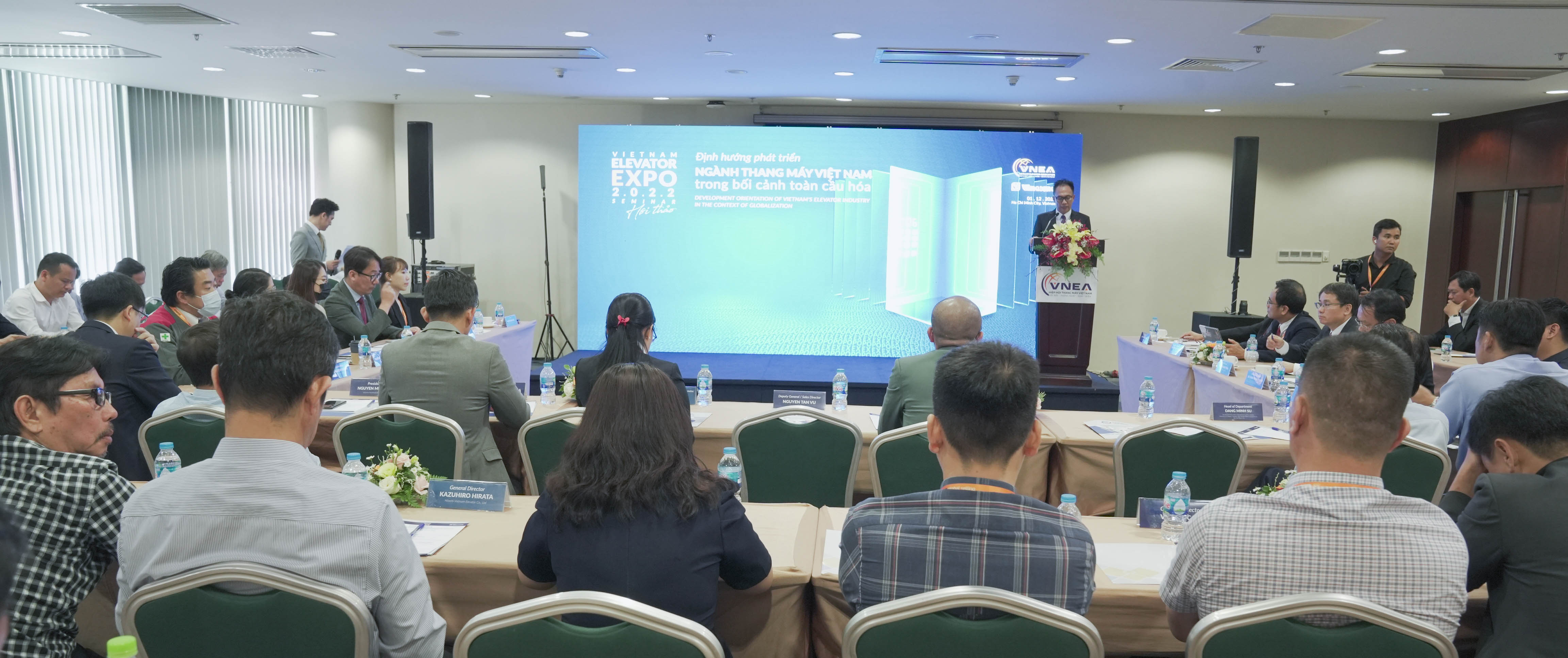
VNEA President Nguyen Hai Duc delivered the keynote speech of the Conference
According to Dr. Ha Tat Thang, Director of the Department of Occupational Safety, Ministry of Labour, Invalids and Social Affairs (Labour, Invalids and Social Affairs), a number of key solutions are needed.
That is to put into operation and complete the database of technical safety inspection for elevators; international cooperation, especially cooperation with Korea, to develop a mechanism to promote the establishment of elevator safety testing facilities in Vietnam; guiding the standardization of the conformity certification process for elevator products; training human resources to test and inspect elevators; study and amend national technical regulations and inspection procedures to be in line with reality.
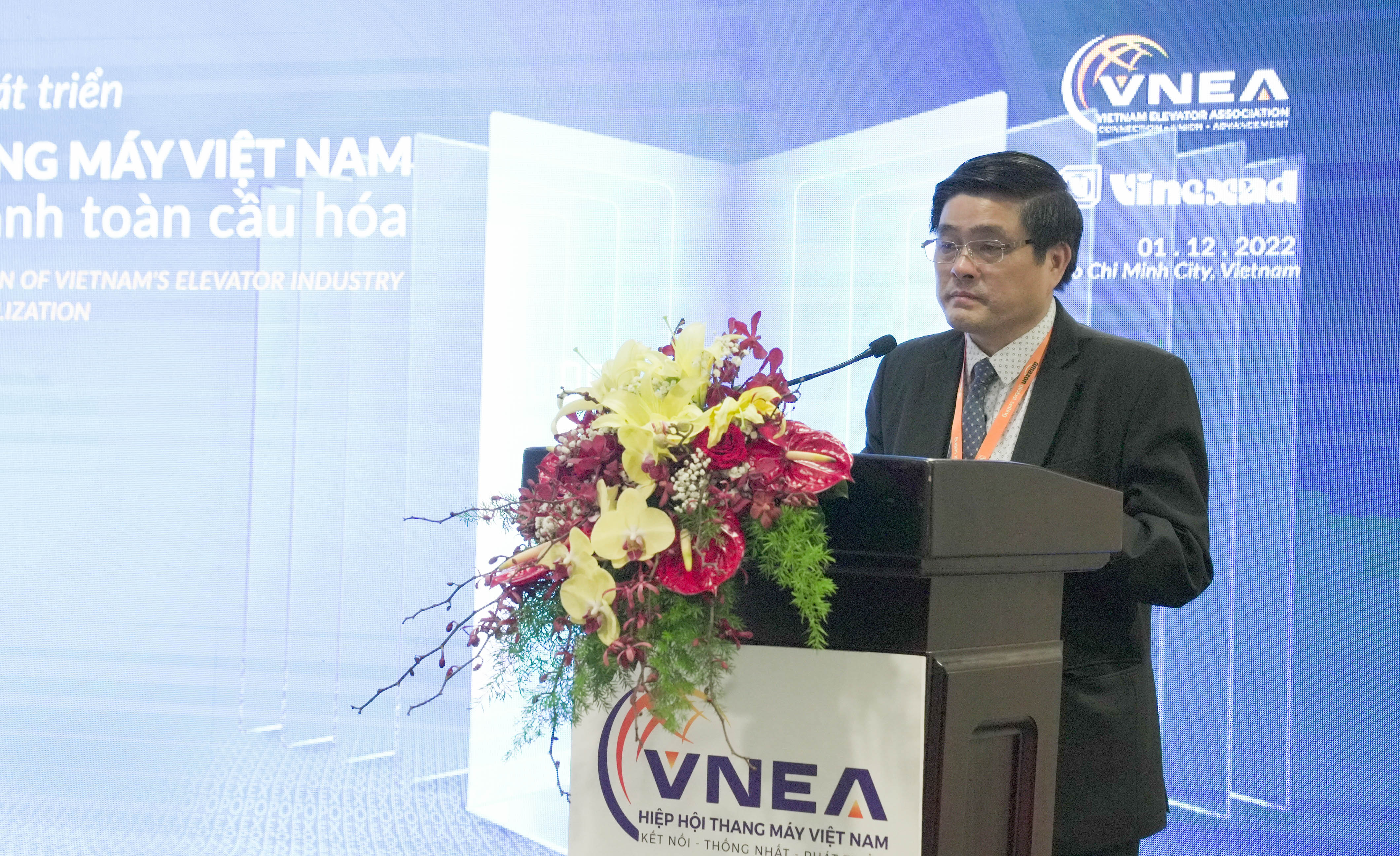
Director of the Department of Labor Safety Ha Tat Thang: Occupations that affect people’s safety and security conditions need to be set up for strict management.
Dr. Nguyen Chi Truong, Director General of Vocational Skills Department, General Department of Vocational Education and Training, Ministry of Labour, Invalids and Social Affairs proposed some recommendations for VNEA. That is, VNEA actively cooperates with the Ministry of Industry and Trade in formulating and promulgating national occupational skill standards for professions related to the field of elevators and escalators.
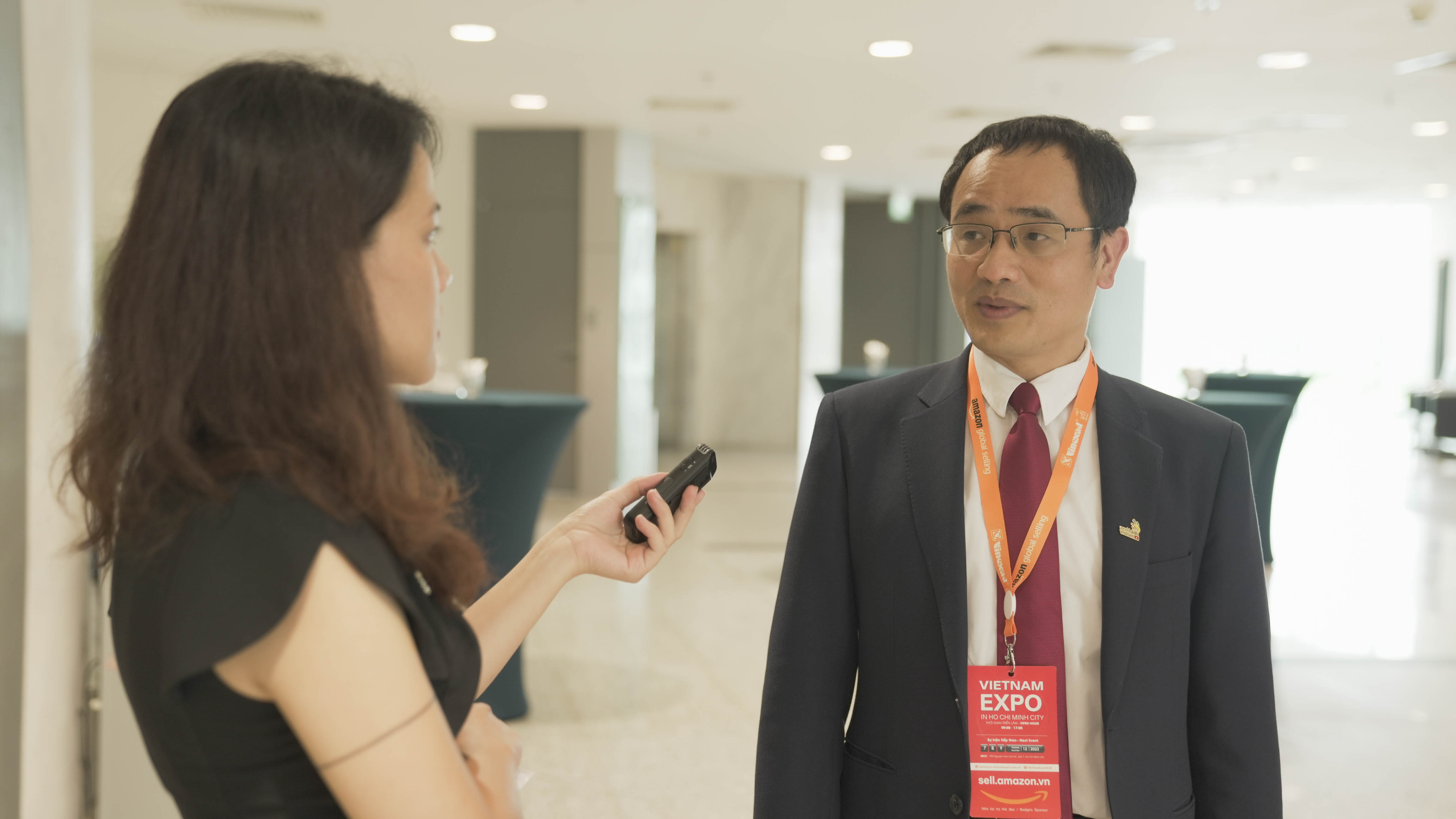
Director of the Department of Vocational Skills Nguyen Chi Truong: It is necessary to propose the addition of the elevator profession to the list of jobs requiring a national vocational skill certificate.
Dr. Pham Xuan Khanh, Chairman of the Council of Hanoi High-Tech Vocational College (HHT) also wishes to include the profession of elevator engineering in the training list. He also suggested that elevator businesses only use trained workers to help the industry develop stably and provide the best services for society.
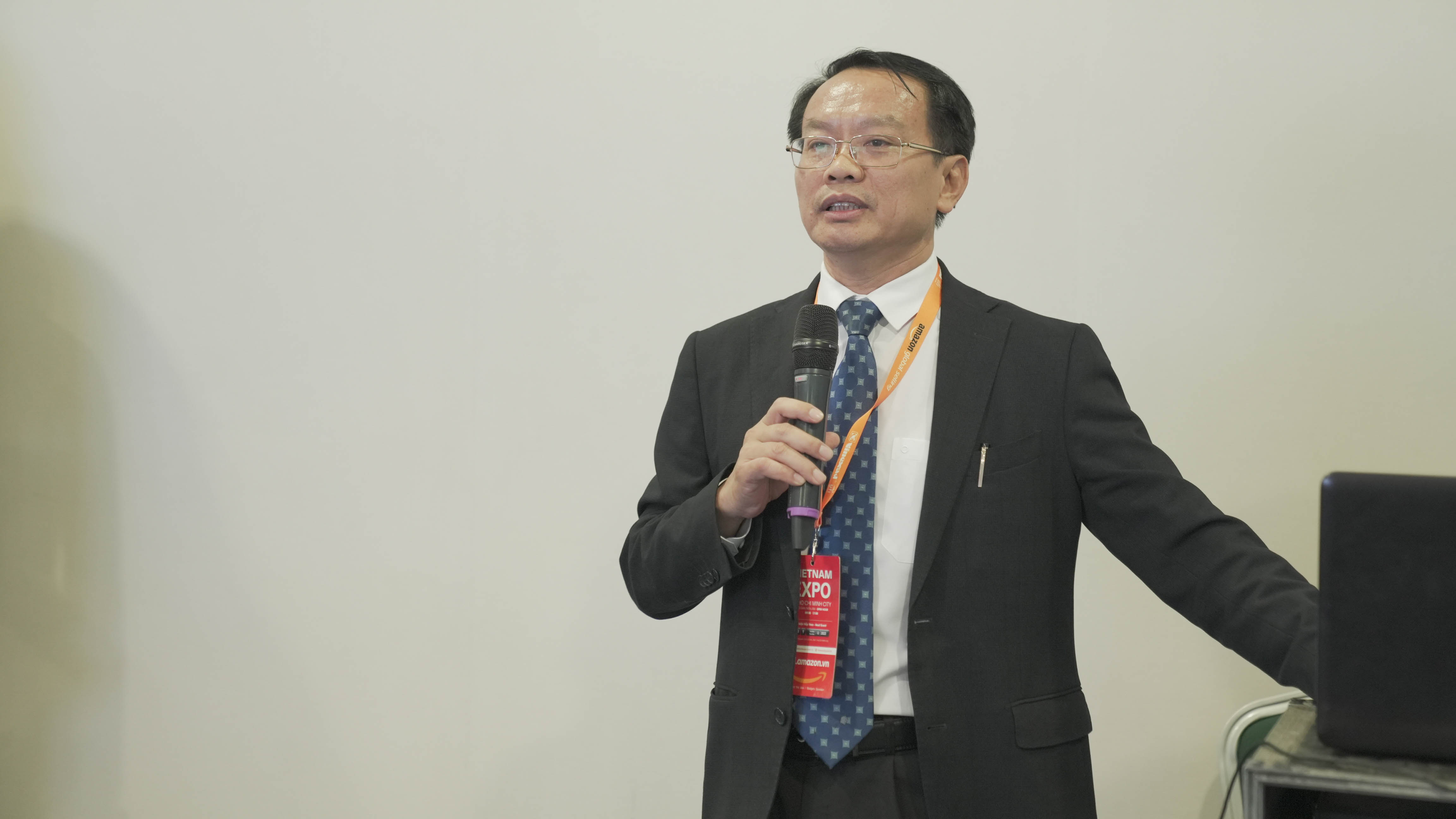
Dr. Pham Xuan Khanh: It is necessary to develop national occupational skills standards for the elevator industry soon.
A representative of KoELSA also shared that in the past 30 years, Korea has reduced a lot of accidents related to elevators and escalators. The reason is that Korea has built an effective safety inspection and monitoring system and process. Elevator industry technical training programs are very well designed to improve skills in training technicians. KoELSA also said that in Korea, information on accidents, management and monitoring of elevator equipment is publicly available to the entire population.
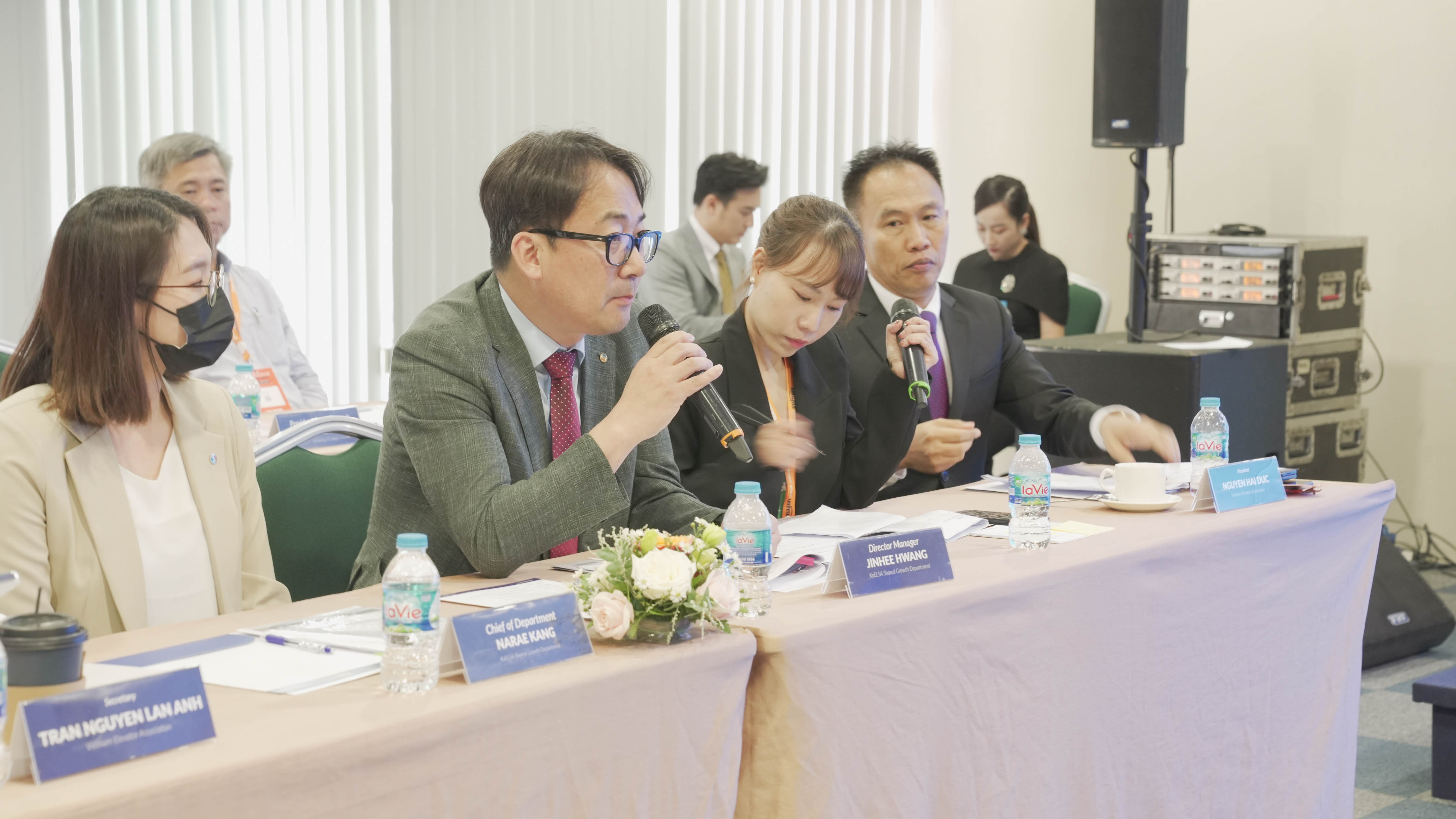
KoELSA representative: Korea applies information technology in managing and monitoring information related to elevator safety.
Also in the program, an exchange and cooperation agreement between KoELSA and VNEA on elevator safety and industrial development was also signed.
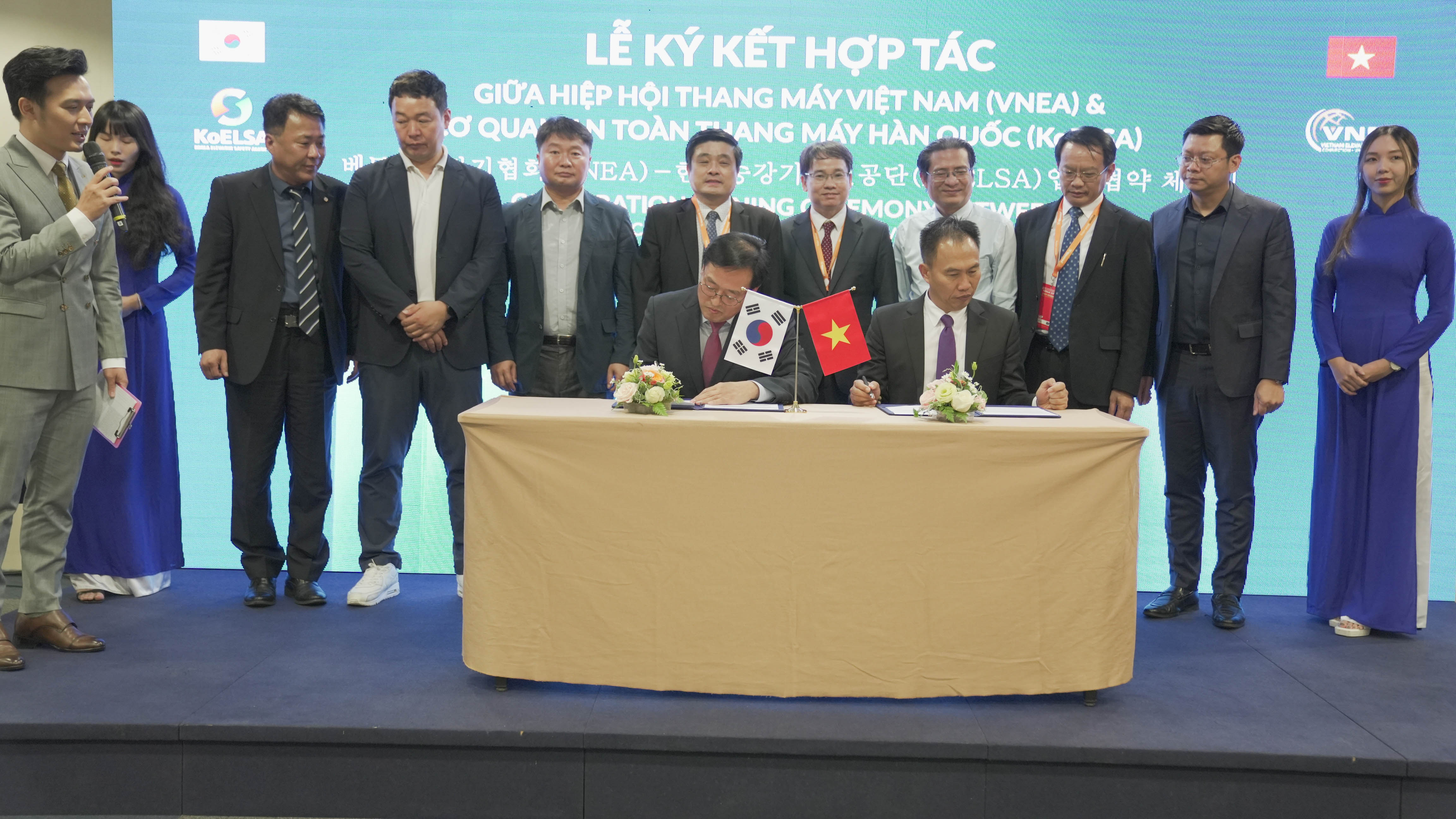
VNEA President (right) and KoELSA President (left) sign a cooperation agreement.
The content of this agreement includes the main parts.
Elevator safety system development cooperation: The parties will work together to develop institutions and actively support information exchange between the two sides and the two governments to improve elevator quality and safety.
Cooperation in exchanging information on elevator safety, in order to prevent safety incidents related to elevators. The parties will share information on serious accident data and related statistical data, related experiences such as elevator manufacturing and installation, and work together for the development of the elevator industry.
Cooperation in the development of the elevator industry to improve the elevator industry, the parties will exchange and cooperate in technology support, technology transfer, education and training of elevator experts, etc. development of the elevator industry, the parties will endeavor to establish a platform for the advancement of small and medium enterprises, participate in elevator exhibitions and major events organized by the parties.
Confidentiality and use of shared information, the parties can share information with each other according to the principles of law and confidentiality. The parties may share information with each other through their websites. Or the parties may use the information received for communication purposes./.



